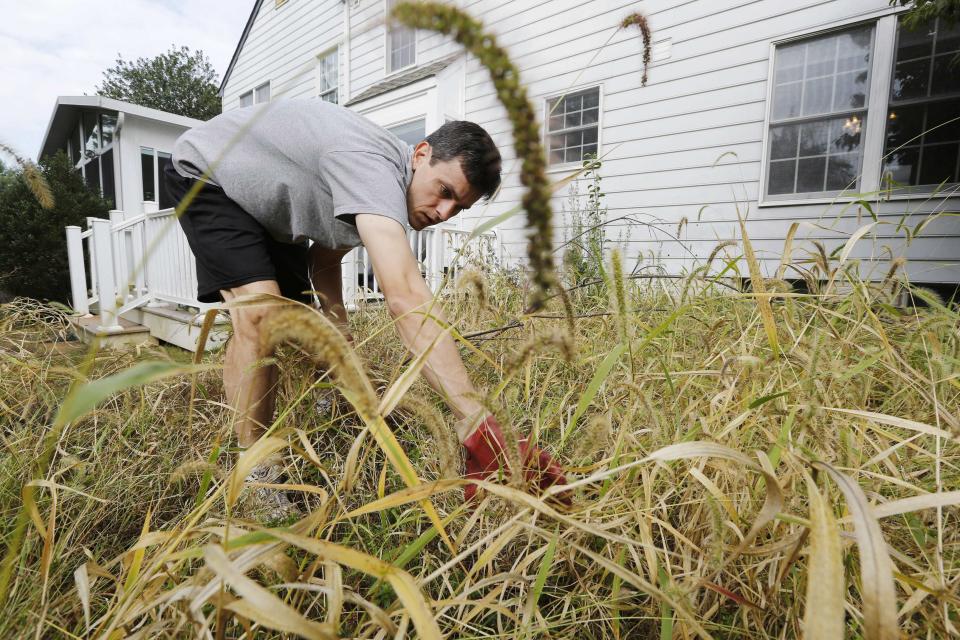In U.S. shutdown drama, dismay and anxiety for one 'nonessential'
By Patrick Rucker WASHINGTON (Reuters) - Statistician Steve Hanway had expected to spend Tuesday reviewing a tally of far-flung childhood injuries in his job at the U.S. Consumer Products Safety Commission, a federal agency that identifies household perils. Instead, Hanway spent the day sidelined in his home in Gaithersburg, Maryland, one of about 800,000 federal workers furloughed in the first U.S. government shutdown in 17 years. Hanway, who says he takes pride in his agency's recent work on child deaths and injuries from swallowing magnetic toys, was deemed "non-essential" and sent home for an indefinite unpaid stay. Luckily, Hanway, 40, has company in his suburban community of spacious family homes. His wife, Jonaki Bose, 41, a statistician for the Substance Abuse and Mental Health Services Administration, was also deemed non-essential and shut out of her office at the U.S. Department of Health and Human Services. Hanway joined the federal workforce two years ago after a long stint at the Gallup polling organization, hoping the change to a 9-to-5 federal job would cut down on the road trips and long hours that consumed his family time. A father of two, he worried that without a job shift "I'd be a stranger to my kids." In the four days since the federal furlough began, he's had plenty of time at home. The first day of the shutdown, Hanway and his wife puttered in the yard, rearranged the store room and played tennis. Another day they visited the American Red Cross blood bank and donated platelets, trying to feel useful. Keeping busy relieves anxiety, which Hanley acknowledges is building as the stress of no paychecks settles in. The family lives frugally, Hanway said, and they have a 'rainy day' fund to see them through a missed paycheck or two. Yet Monday evening, Hanway and his wife became restless as they followed broadcasts of congressional maneuvers that went on past midnight. It finally became obvious no compromise was in sight. They tried to lighten the mood with glimpses of the news parody program, 'The Daily Show.' "I'm not prone to sleepless nights, but Monday was one for both of us," he said. "There is some anxiety for the kids. You tell them not to worry, but they know what's going on." Families like Hanway's are scattered across the Washington, D.C. metropolitan region, where 446,000 men and women, or roughly 14 percent of the area's workforce, are employed by the federal government. That doesn't count the multitudes who work as federal contractors. Hanway's Gaithersburg neighborhood is part of a band of affluence ringing the nation's capital, where three-bedroom homes with two-car garages can top $600,000 and the public schools are among the finest in the country. Like Hanway, many federal workers take government jobs out of a call to public service, leaving behind private companies that may offer better pay and prominence. That makes the non-essential designation even more frustrating, since Hanway is convinced the work he does at the product safety commission's offices in Bethesda, Md. saves lives. Employees at the agency in recent years have focused on everyday hazards like infant cradles with slats that can trap babies' heads and kitchen toasters prone to fires. Hanway's team of statisticians helped detect a wave of emergency room visits by children who had swallowed high-powered magnets that were marketed as a novelty toy, helping raising an alarm that got the product off shelves within months. Early in the month, he and his team receive data on injuries nationwide. It was just such a report that helped the agency detect the magnet injuries to children. He was supposed to see another report on October 1, the same day he was furloughed. "Could something crop up that we won't be able to pounce on because so many people are absent? I think that answer is: yes," he said. Instead, Hanway is focusing on personal fitness, finally putting the cross trainer in his bedroom to good use. "It just feels like we're collateral damage," he said. (Reporting By Patrick Rucker; Additional reporting by Jim Bourg; Editing by Marilyn W. Thompson and Leslie Gevirtz)


